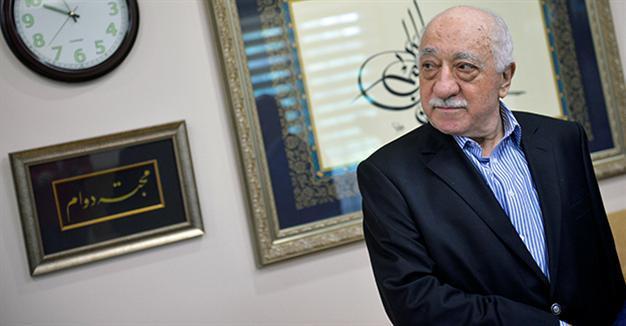Soldier’s testimony reveals how Gülenists lured recruits
ANKARA

REUTERS photo
A petty military official with Turkey’s Gendarmerie has described in his testimony to prosecutors in the southeastern province of Hakkari his links to the Fethullah Terrorist Organization (FETÖ), giving an account of the way the group recruits boys and young men to serve its goals.The non-commissioned officer identified as S.A. described in prosecution documents over the July 15 failed coup attempt how he was approached by Gülenist students while in high school and went on to join the group at university before they instructed him to enlist in the military.
He was enlisted with the help of Gülenists who gave him the answers to the military entrance exam and eventually became a member of the technical intelligence staff involved in wiretapping in the weeks leading up to the December 2013 wiretapping scandal that shook Turkish politics.
S.A. told prosecutors how he was provided with four telephone numbers by his contact just a month before the scandal, which saw a number of ministers and officials close to President Recep Tayyip Erdoğan, who was Turkey’s prime minister at the time, accused of corruption in an investigation that was heavily reliant on wiretapping.
The government said FETÖ-linked police and prosecutors were behind the wiretapping inquiry, which targeted more than 7,000 people, in an effort to bring down the Justice and Development Party (AKP) government.
S.A. said he was posted to the intelligence department of the Gendarmerie Regimental Command in the Aegean province of İzmir when he carried out the eavesdropping.
Recalling his introduction to the group, S.A. said he was a high school student when he met a group of older university students.
“They offered to help with my school courses, saying they did not want any money in return.
“Later, I began to meet them regularly on Sundays at a house where we also prayed and read parts from Fethullah Gülen’s book ‘Eternal Light.’”
In his final year of high school he earned a scholarship at a private school to prepare for the university entrance examination. However, his Gülenist “brothers” persuaded him to cram for the exam at a FETÖ-linked school.
In 2006, he started a science degree and reunited with his Gülenist friends, who offered him accommodation. Over the next four years he lived in shared houses with the “brothers.”
“A number of students who had financial problems and needed a place for accommodation preferred those houses of the parallel state [FETÖ],” he said.
S.A. said those houses never had televisions or the Internet and students were banned from smoking, drinking alcohol or having girlfriends. He later became his house’s “imam” and would meet others weekly to discuss Gülen’s messages.
He and his fellow students were encouraged to vote for the AKP and said they were directly instructed to vote in favor of the changes offered to Turkey’s constitution in a 2010 referendum.
The instructions were part of a rigid system demanding complete obedience, he added. It was this obedience that saw him move out of FETÖ-linked housing in his final year at university to stay with friends.
“It was an order to obey,” he said. “I also bought a new phone with a new number.”
Cutting obvious ties to other FETÖ members could be seen as preparation to adopt a clandestine cover and hide any ties to the group.
















